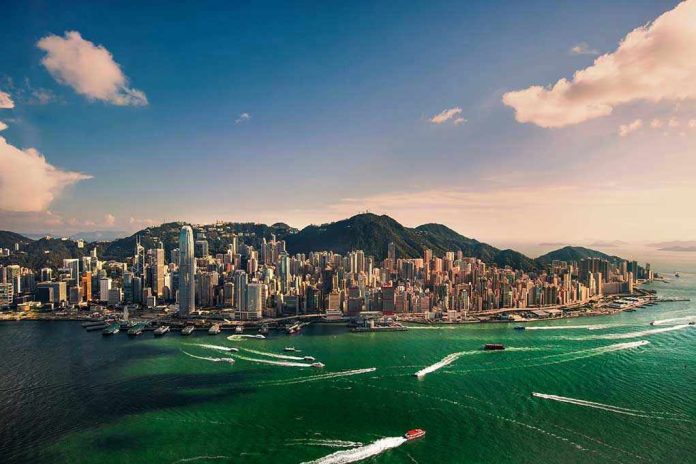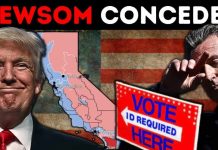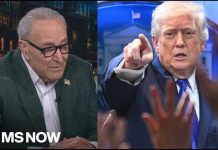
Hong Kong authorities are now issuing arrest warrants for pro-democracy activists living in the United States, all while Beijing’s national security law threatens to reach right onto American soil—so the question every American should be asking is: are we about to let foreign dictatorships police free speech in OUR country?
At a Glance
- Hong Kong’s government, under Beijing’s command, is targeting activists abroad—including those in the U.S.—using a sweeping national security law with extraterritorial reach.
- The U.S. government, led by President Trump, has vowed not to tolerate foreign attempts to intimidate or silence individuals on American soil.
- Sanctions and legislative actions have been taken against Chinese and Hong Kong officials for undermining Hong Kong’s autonomy and civil liberties.
- Experts warn that the law erodes Hong Kong’s freedoms, chills dissent, and sets a dangerous precedent for authoritarian repression worldwide.
Beijing’s Long Arm Reaches Into the U.S.—And People Are Fed Up
After years of watching Hong Kong’s freedoms get steamrolled, it’s no surprise to see the Chinese Communist Party (CCP) now openly targeting pro-democracy voices around the globe. The 2020 National Security Law (NSL), rammed through by Beijing, criminalizes everything from so-called “subversion” to “collusion with foreign forces” and—here’s the kicker—claims it applies anywhere on Earth, even right here in America. You read that right: A foreign dictatorship wants to reach into our backyard and threaten anyone they don’t like for speaking out. If that doesn’t make your blood boil, you might want to check your pulse. The NSL’s vague language and extraterritorial claims have alarmed not just Washington, but every country that still values basic freedoms.
🚨 𝗥𝘂𝗯𝗶𝗼 𝗖𝗿𝗶𝘁𝗶𝗰𝗶𝘇𝗲𝘀 𝗛𝗼𝗻𝗴 𝗞𝗼𝗻𝗴 𝗔𝘂𝘁𝗵𝗼𝗿𝗶𝘁𝗶𝗲𝘀 𝗔𝗳𝘁𝗲𝗿 𝗪𝗮𝗿𝗿𝗮𝗻𝘁𝘀 𝗜𝘀𝘀𝘂𝗲𝗱 𝗳𝗼𝗿 𝗢𝘃𝗲𝗿𝘀𝗲𝗮𝘀 𝗔𝗰𝘁𝗶𝘃𝗶𝘀𝘁𝘀
Read more 👇https://t.co/cceeHG9eWM
— The Epoch Times (@EpochTimes) July 28, 2025
U.S. lawmakers, including Senator Marco Rubio, are pushing back hard, declaring that America will not tolerate any attempt by the Hong Kong government to intimidate or silence people on U.S. soil. In a statement echoing what every freedom-loving American believes, Rubio called out these “outrageous attempts to export repression,” making it clear that the United States stands with Hong Kong’s activists and will defend the right to speak freely—no matter what a foreign regime demands. This is the kind of backbone we need, especially after years of “woke” hand-wringing and appeasement that did nothing but embolden our adversaries.
Hong Kong’s Erosion of Freedom: How Did We Get Here?
Hong Kong used to be a beacon of liberty in Asia, thanks to the “one country, two systems” agreement after the 1997 handover from Britain. This deal was supposed to guarantee Hong Kong’s autonomy and civil liberties—rights unheard of in mainland China. But over the years, Beijing slowly chipped away at those freedoms, culminating in the 2019 anti-extradition bill protests when millions took to the streets to resist creeping communist control. In June 2020, with the world distracted by a pandemic, Beijing imposed the NSL—without even letting Hong Kong’s own legislature vote on it. The international response was swift: The U.S. stripped Hong Kong of its special trade status, imposed sanctions on Communist officials, and passed laws like the Hong Kong Human Rights and Democracy Act. Yet, the CCP just doubled down, now going after anyone, anywhere, who dares to stand up for freedom.
What makes this even more outrageous is the law’s claim that it can reach outside Hong Kong and China. The NSL asserts jurisdiction over non-residents—meaning an American citizen speaking out for democracy could, in theory, find themselves on a Chinese wanted list. This isn’t just a Hong Kong problem, folks. This is a direct attack on American sovereignty and free speech. It’s exactly the kind of foreign interference that the left claims to care about—except this time, their silence is deafening.
The U.S. Response: No More Appeasement—It’s About Time
President Trump’s administration is not mincing words. Official statements from Washington make it clear that any attempt by the Hong Kong government to enforce its repressive foreign law on U.S. soil will be met with stiff resistance. The U.S. has not only suspended the extradition treaty with Hong Kong—making it legally impossible for the CCP to drag activists back to face their kangaroo courts—but has also sanctioned top officials involved in the crackdown. These actions, while overdue, finally send the message that America will not be pushed around by totalitarian bullies. Diplomatic tensions with the CCP are rising, but that’s what happens when you actually stand up for your country’s interests instead of rolling over and letting foreign regimes dictate the rules.
Experts from across the political spectrum—legal scholars, human rights organizations, and democracy advocates—agree that the NSL’s extraterritoriality is a flagrant violation of international law and a threat to the global order. The law has already spread a chilling effect among Hong Kongers abroad, leading to self-censorship and fear. If the U.S. doesn’t hold the line here, it will only encourage more authoritarian regimes to try the same stunt. The Trump administration’s actions prove that the days of cowering to “global norms” that only benefit dictators are over.
Hong Kong’s Decline: The Real-World Impact of Dictatorship-by-Decree
Since the passage of the NSL, Hong Kong’s autonomy is now little more than a memory. The city’s economy, once the envy of Asia, is taking hits from U.S. sanctions and the loss of its special status. Socially, the once-vibrant city now lives in fear: universities, NGOs, businesses, and even diaspora communities abroad must constantly look over their shoulders. The only ones cheering are the CCP apparatchiks who see dissent as a threat to their grip on power.
This is about more than just Hong Kong. If we allow authoritarian regimes to police speech and activism on American soil, then what’s next? Will we let Putin’s goons start arresting Russian dissidents in New York? Will Iran’s theocrats get to decide what Americans can say about the Middle East? This law sets a global precedent for repression that cannot be tolerated—not by any country that claims to value freedom, sovereignty, and the rule of law. The Trump administration’s stand is the right one, and it’s time for every patriotic American to demand the same from Congress, the courts, and every level of government.
Sources:
Chinese Ministry of Foreign Affairs
U.S. Department of the Treasury




